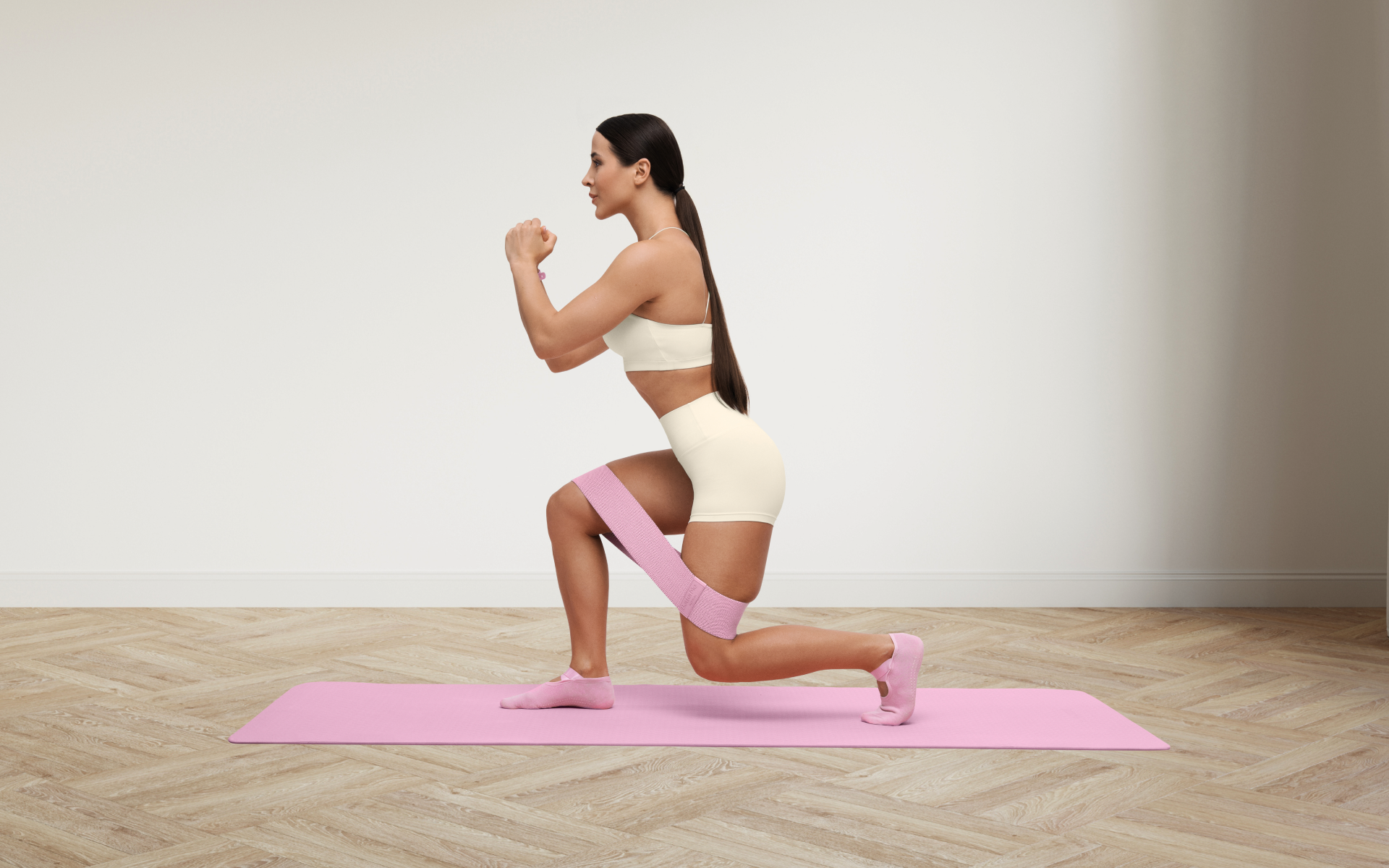If you enjoy a good run, then you definitely appreciate the need for proper training. Training sets you up for success as it prepares both your body and mind for the challenge. Most individuals think that all you have to do is get up, put on your running shoes, and hit the road. However, a lot of work and patience are needed to adequately prepare for long-distance runs. Are you looking for an ideal and realistic marathon training plan? We explore a 24-week marathon training plan and how to get started and get the most out of it.
Get your personalized
meal plan!
How To Train For A Marathon?
Training for a marathon is challenging and requires good effort, commitment, and patience. To train adequately, you need to also invest your time. This means that your family, social, and rest times may be affected.
When choosing a marathon training plan, there are a few things you need to do and consider, including:
- Goal Setting. This is arguably the most important. You need to set goals that are both achievable and realistic without putting too much strain on yourself. Also, have in mind the time within which you want to complete the race. If your goal is to complete the race, consider a longer training program. But if you intend to complete the race within a specific time interval, then choose a more challenging one.
- Time. You may need to incorporate the training into your daily routine. So, you need to determine exactly how much time you can spend training. If you are busy, then you can train for 3 to 4 days weekly. If you are flexible, you can train for 5 to 6 days weekly.
- Fitness Ability. Your fitness level also matters. If you are a beginner, then you will need a plan that allows you to gradually build up the intensity of your runs and workout. An advanced runner would require a more challenging training plan.
A marathon is about 26 miles and 365 yards (42.165 kilometers) and is the longest race in the Olympics. Professional athletes take about two hours to complete a marathon. Other runners take an average of four hours to run a full marathon.
During the course of your training, you should aim to increase your speed, endurance, and power. You will also need to improve your stamina and mental resilience. To do this, perform short and long runs at a comfortable pace in both even and tough terrain. Other training methods include cross-training, interval training, and strength training.
Other benefits of training before a marathon include:
- Increase confidence
- Improve time efficiency
- Avoiding injuries and overtraining
- Test your level of endurance
If you opt for a 24-week training plan, you will have about five and a half months to prepare. This is enough time to get yourself ready to ace that marathon. You can also opt for a 20-week training program or a longer one, depending on the time you have before the marathon. For an advanced-level 24-week marathon training plan, increase the running distance and reduce the rest days to only one.
Below is an intermediate-level 24-week marathon training plan. It is ideal for both advanced and novice runners. However, if you are totally new to running, start slowly, then gradually increase your running distance.
Read More: Ultramarathon Training Plan: How To Build Endurance For Running 50 Miles Or More
This plan is divided into four sections:
Prep Phase: Week 1 to 6
- Monday: 5 to 6-mile easy run
- Tuesday: Cross-training or strength training
- Wednesday: Rest day (you can opt for active rest and take a short walk around the block, jog, cycle, or swim)
- Thursday: 7-mile aerobic run (35 to 45 seconds faster than an easy pace run)
- Friday: Cross-training or strength training or rest day
- Saturday: 8-mile consisting of a 2-mile warm-up, 2 x 2 miles at half marathon pace with easy jog in between, and 2-mile warm down
- Sunday: 11 to 12-mile aerobic run
Building Phase: Week 7 to 12
- Monday: Cross-training, strength training, or rest day
- Tuesday: 8-mile consisting of a 2-mile warm-up, 4 x 1k at 10k pace with 120 seconds rest, and a 2-mile warm down
- Wednesday: Cross-training or strength training
- Thursday: 12 to 14-mile aerobic run
- Friday: Rest day
- Saturday: 12 to 13-mile consisting of a 2-mile warm-up; 4 x 2-mile at marathon pace with 2 to 3 minutes rest
- Sunday: 13 to 15-mile easy run
Half-Marathon Phase: Week 13 to 18
- Monday: Rest day
- Tuesday: 8-mile consisting of a 2-mile warm-up, 4 x 1200 at 10k pace with 2 minutes rest, and 2-mile cool-down.
- Wednesday: 4 to 6-mile easy run
- Thursday: 5 to 7-mile aerobic run
- Friday: 4 to 6-mile easy run
- Saturday: 20-mile consisting of a 2-mile warm-up and 3 x 4-mile at marathon pace and then 2-mile easy run
- Sunday: 10 to 12-mile easy run or 16 to 18 simulation (on a rolling hill course) consisting of an 8-mile easy run, 6 to 8-mile at marathon pace, and a 2-mile easy run
Marathon-Specific Phase: Week 19 to 24
- Monday: Rest day
- Tuesday: 10-mile consisting of a 2-mile warm-up, 6 x 800 meters uphill at half marathon pace, 60 seconds rest, 800 meters downhill at marathon pace with two minutes rest between sets, and, finally 2-mile warm down.
- Wednesday: 6 to 8-mile easy run
- Thursday: 5 to 7-mile aerobic run
- Friday: 10-mile run consisting of a 2-mile warm-up, a 6-mile tempo at half-marathon pace, and a 2-mile cool-down
- Saturday: 4 to 6-mile easy run
- Sunday: 18 to 22-mile marathon stimulation on a rolling hill course consisting of 8 to 10-mile easy run, 8 to 10-mile at marathon pace, and 2-mile easy run
If you wish to free yourself from all the extra pounds that have been weighting you down for way too long, start using the BetterMe app and overhaul your entire life!
Meal Plan For 24 Week Marathon Training Schedule
Eating right is essential. You need to provide your body with the right foods so that your athletic performance is optimal. When you fuel your training with the right foods, you are able to run for longer at a faster speed.
Protein helps build muscle and prevents loss of muscle mass (1). Carbohydrates, on the other hand, help replenish your glycogen reserves, which are used up during running (4). What’s more, a combination of complex carbs and protein maximizes protein and glycogen synthesis (3). Also, include fruits, vegetables, and healthy fats like olive and avocado oils in your meal plan.
Try to avoid processed foods like white bread, savory snacks, processed meats, refined carbs, fast foods, added sugar, and carbonated drinks. Also, cut back on the booze as you want to be in the best shape during your marathon.
The following is a sample meal plan for marathon training that you can follow:
Breakfast
- Whole grain toast with eggs and avocado
- Bowl of oatmeal with a scoop of protein powder, almond butter, and mixed berries
- Whole-grain cereal with milk and blueberries
- Homemade granola with fresh berries
Snack Options
- Apple slices with peanut butter
- Greek yogurt with berries and almond
- Almond milk, chocolate whey, tart cherries, and banana smoothie
- Apple and oatmeal cookies
- Whole wheat crackers with hummus
Lunch
- Tofu stir fry with peppers, broccoli, onions, and oranges
- Quinoa bowl with black beans, chicken, mixed vegetable salsa, and cheese
- Low-fat vegetable soup with whole wheat crackers
- Lentil curry with cauliflower rice
- Aubergine and chickpea stew
Dinner Meals
- Massaged kale salad with beets, grilled chicken, and brown rice
- Roasted salmon, potatoes, and broccoli with tahini sauce
- Brown rice with any non-starchy vegetable and fruit
- Turkey on whole grain bread with tomato and lettuce
- Salmon tacos with pineapple salsa
Read More: Marathon Training Plan 16 Weeks for Beginner and Intermediate Runners
Do’s And Don’t When Training For A Marathon
Here are tips to help you get started and get the most out of your 24-week marathon training plan:
Do: Start Slow
This is especially important if you are a newbie runner. It is important to start slowly to allow your body time to adjust to running. If you run too much during training you’ll burn out quickly instead of improving your speed and stamina.
Start with shorter distances, then gradually increase the mileage. During the first few weeks, run at a comfortable pace, such that you are able to talk while running.
Don’t: Overtrain
Overtraining is a common mistake runners make. Training too much without getting proper rest to allow muscle recovery increases your risk of getting injured (8). This means that your performance won’t be optimal.
So, take time to rest in between your training. You can opt for passive or active recovery. Active recovery has the upper hand compared to complete inactivity. You can take a short walk, swim or do some yoga. Also, listen to your body, so that you are able to tell when it is time to take a rest or challenge yourself.
Do: Hydrate
You probably have heard this one over and over again. Water plays a role in muscle recovery, regulates temperature, and lubricates joints (5).
Always bring a bottle of water with you. You can also purchase a hydration pack if you find carrying a bottle cumbersome. You can also stay hydrated by drinking electrolyte drinks, coconut water, and unsweetened vegetables and fruit juices.
Do: Cross Train
Cross-training means training with various types of movements and exercises. This helps build different muscle groups and, as you build muscle, improve your endurance. So for the 24-week plan marathon, cross-training program mixes things up a bit by cycling, jogging, dancing, weight lifting, or using elliptical trainers.
Don’t: Get Inadequate Sleep
Sleep is an important component of rest. If you are juggling in between work or school and training, you may find that you don’t get enough sleep. Over time, this will negatively affect your performance as the fatigue will wear you down.
Some studies show that getting inadequate sleep increases your risk of injury (2). So, make sure you get at least 7 to 9 hours of quality sleep every night to allow proper muscle recovery.
Do: Dress Right
Putting on the right gear might sound obvious– but it is essential! Invest in a good pair of running shoes. They should provide proper heel and foot support and be the right fit. This helps reduce the risk of injury (7).
Also, wear loose comfortable clothing, preferably made of cotton or any other breathable fabric.
Yanking yourself back in shape has never been so easy with our game-changing fitness app! Start transforming your life with BetterMe!
Do: Stretch Before and After Your Runs
Just like with other exercises, you are advised to warm up, cool down, and stretch. Warm-up and down by taking a short walk or doing lunges, strides, or leg swings.
Both dynamic and static stretching is suitable. Dynamic stretches help prepare your muscles before you begin your run by increasing your range of motion and blood flow. Static stretching, on the other hand, involves holding a position for some time and is, therefore, more suitable for your post-workout to cool down.
Do: Strength Train
Many athletes swear by strength training. Strength training also referred to as resistance training basically involves weight lifting. But other common strength training exercises include squats, hinges, lunges, planks, and resistance band exercises.
Strength training helps increase muscular strength and build muscle. It also helps improve your endurance, flexibility, and mobility (6). With weight lifting start with light weights before advancing to heavier ones. Also, practice proper technique when strength training to get the most out of it.
The Bottom Line
Preparing for a marathon can be challenging but is crucial for your success in the long run. Setting your training goals and choosing a training program comes first, then the most important aspect, execution. All you need to do is be consistent, stay focused, and put in some effort. Remember to eat lean protein, complex carbs, drink plenty of water, and get enough rest.
DISCLAIMER:
This article is intended for general informational purposes only and does not serve to address individual circumstances. It is not a substitute for professional advice or help and should not be relied on for making any kind of decision-making. Any action taken as a direct or indirect result of the information in this article is entirely at your own risk and is your sole responsibility.
BetterMe, its content staff, and its medical advisors accept no responsibility for inaccuracies, errors, misstatements, inconsistencies, or omissions and specifically disclaim any liability, loss or risk, personal, professional or otherwise, which may be incurred as a consequence, directly or indirectly, of the use and/or application of any content.
You should always seek the advice of your physician or other qualified health provider with any questions you may have regarding a medical condition or your specific situation. Never disregard professional medical advice or delay seeking it because of BetterMe content. If you suspect or think you may have a medical emergency, call your doctor.
SOURCES:
- Dietary Protein and Muscle Mass: Translating Science to Application and Health Benefit (2019, mdpi.com)
- How Sleep Affects Athletic Performance (2021, sleepfoundation.org)
- Independent and Combined Effects of Amino Acids and Glucose… : Medicine & Science in Sports & Exercise (2003, journals.lww.com)
- International Society of Sports Nutrition position stand: Nutrient timing (2008, jissn.biomedcentral.com)
- Practical Hydration Solutions for Sports (2019, mdpi.com)
- Resistance Training is MedicineEffects of Strength Training on Health (2012, journals.lww.com)
- Running shoes and running injuries: mythbusting and a proposal for two new paradigms: ‘preferred movement path’ and ‘comfort filter’ (2015, bmj.com)
- Syndrome (2012, ncbi.nlm.nih.gov)












